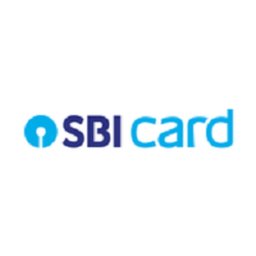Assistant Manager Learning & Development
Year IN, India
Job Description
About the company
SBI Card is a leading pure-play credit card issuer in India, offering a wide range of credit cards to cater to diverse customer needs. We are constantly innovating to meet the evolving financial needs of our customers, empowering them with digital currency for seamless payment experience and indulge in rewarding benefits. At SBI Card, the motto 'Make Life Simple' inspires every initiative, ensuring that customer convenience is at the forefront of all that we do. We are committed to building an environment where people can thrive and create a better future for everyone.
SBI Card is proud to be an equal opportunity & inclusive employer and welcome employees without any discrimination on the grounds of race, colour, gender, religion, creed, disability, sexual orientation, gender identity, marital status, caste etc. SBI Card is committed to fostering an inclusive and diverse workplace where all employees are treated equally with dignity and respect which makes it a promising place to work.
Join us to shape the future of digital payment in India and unlock your full potential.
What's in it for YOU
SBI Card truly lives by the work-life balance philosophy. We offer a robust wellness and wellbeing program to support mental and physical health of our employees Admirable work deserves to be rewarded. We have a well curated bouquet of rewards and recognition program for the employees Dynamic, Inclusive and Diverse team culture Gender Neutral Policy Inclusive Health Benefits for all - Medical Insurance, Personal Accidental, Group Term Life Insurance and Annual Health Checkup, Dental and OPD benefits Commitment to the overall development of an employee through comprehensive learning & development framework
Role Purpose
Ensure the effective design, delivery, and evaluation of training programs that enhance employee skills, knowledge, and performance.
Role Accountability
Program Development and Implementation: Design and implement training programs that align with organizational goals and address skill gaps Facilitation and Delivery: Conduct training sessions & workshops ensuring they are engaging and effective Assessment and Evaluation: Develop and administer assessments to measure the effectiveness of training programs and the retention of knowledge Continuous Improvement: Regularly review and update training materials and methods to ensure they remain relevant and effective Employee Development: Support employees in their professional growth by identifying development needs and providing appropriate learning opportunities. Collaboration: Work closely with other departments to ensure training programs meet the needs of the organization and its employees Resource Management: Manage training resources, including budgets, materials, and external partnerships, to ensure efficient program delivery Reporting and Analysis: Track and report on training metrics, such as completion rates and knowledge retention, to demonstrate the impact of training initiatives Support and Guidance: Provide ongoing support and guidance to employees, helping them apply new skills and knowledge in their roles Compliance and Standards: Ensure all training programs comply with industry standards and regulatory requirements
Measures of Success
Training Attendance Rate: The percentage of employees who attend scheduled training sessions Course Completion Rate: The percentage of employees who complete the training programs they start Average Time to Completion: The average time it takes for employees to complete training programs Post-Training Assessment Results: Scores from assessments conducted after training to measure knowledge retention and understanding Learner Satisfaction Rate: Feedback from employees on their satisfaction with the training programs, often gathered through surveys Learner Retention Rate: The percentage of knowledge and skills retained by employees over a specified period after training Job Performance Impact: The improvement in job performance metrics, such as productivity or quality of work, following training Training ROI (Return on Investment): The financial return generated from training investments, calculated by comparing the cost of training to the benefits gained Reduction in Skill Gaps: The decrease in identified skill gaps within the organization as a result of targeted training initiatives Training Program Quality: Regular evaluation of training content and delivery methods to ensure they meet high standards Business Stakeholder feedback Project Completion Timelines
Technical Skills / Experience / Certifications
Learning Management Systems (LMS): Proficiency in using and managing LMS platforms to deliver, track, and report on training programs Awareness of Instructional Design and Content Development tools, models and best practices Assessment and Evaluation: Competence in creating and administering assessments to measure training effectiveness and employee learning outcomes Data Analysis and Reporting: Ability to analyze training data, generate reports, and use insights to improve training effectiveness Project Management: Experience in planning, executing, and overseeing training projects to ensure they are completed on time and within budget Facilitation Skills: Strong skills in facilitating both in-person and virtual training sessions, ensuring they are engaging and effective Change Management: Understanding of change management principles to effectively implement and manage training initiatives Behavioral Training Techniques: Proficiency in techniques for conducting behavioral training sessions, such as role-playing, simulations, and interactive activities In-depth Cards Domain Knowledge across functions & Working knowledge of any CRM would be an added advantage
Competencies critical to the role
High impact communication Stakeholder Management Business Acumen Detail Orientation Process Orientation Program Management Data Analysis Ability to negotiate and influence Managing Conflicts and dealing with difficult situations
Qualification
Graduation or Post Graduation Degree
Preferred Industry
Credit Cards, BPO, Banks, NBFCs, Telecom, Insurance
Beware of fraud agents! do not pay money to get a job
MNCJobsIndia.com will not be responsible for any payment made to a third-party. All Terms of Use are applicable.
Job Detail
-
Job IdJD3879060
-
IndustryNot mentioned
-
Total Positions1
-
Job Type:Full Time
-
Salary:Not mentioned
-
Employment StatusPermanent
-
Job LocationIN, India
-
EducationNot mentioned
-
ExperienceYear
